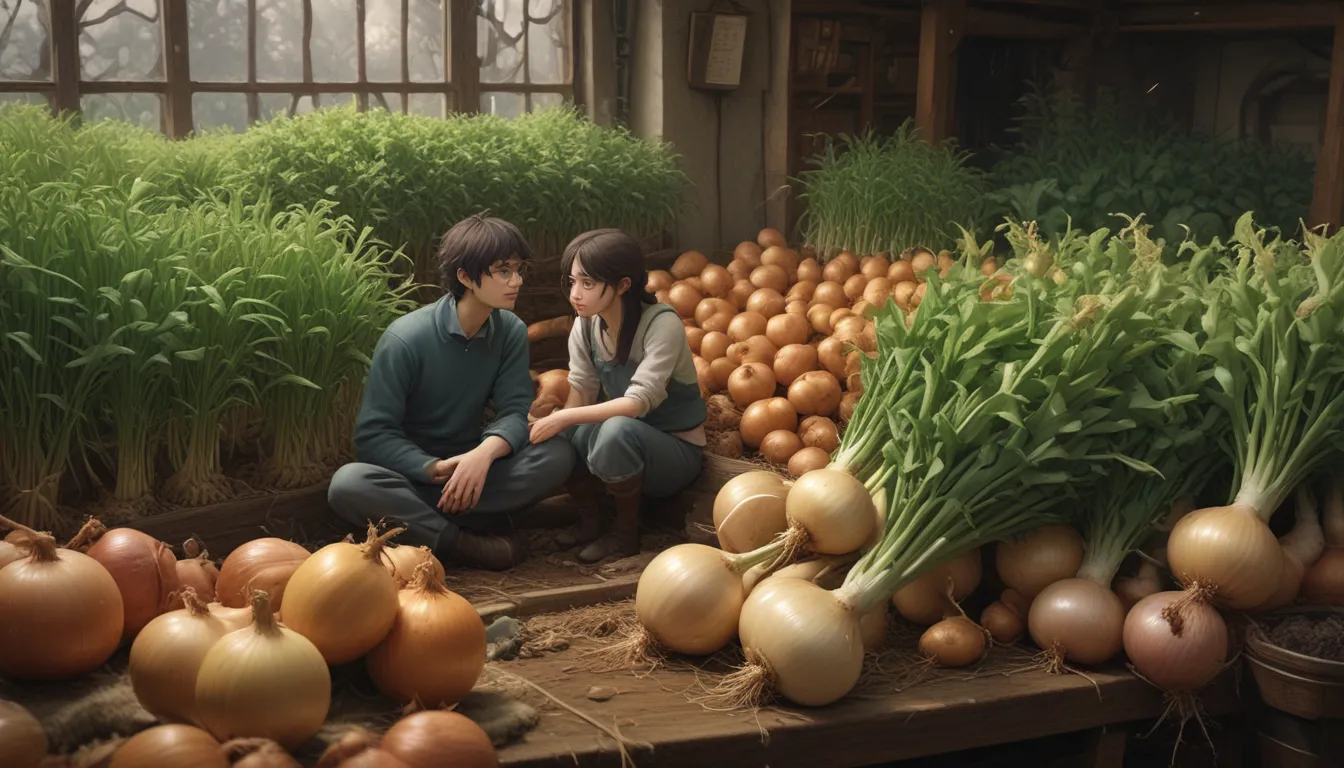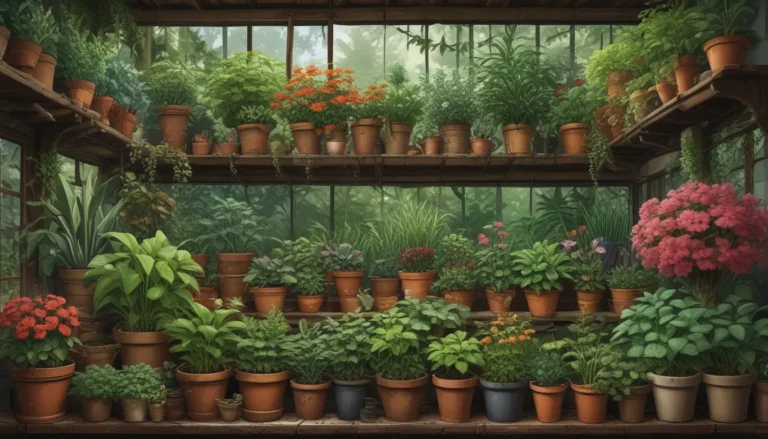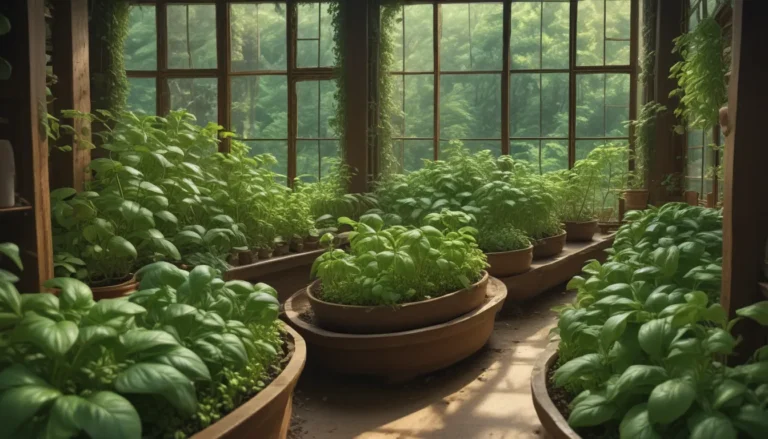Winter Onions: A Guide to Growing and Harvesting

Winter is a time when most crops go dormant or have died off for the season in many areas, leaving a desolate landscape in the garden. But did you know that there are a number of vegetables that can actually thrive during the winter months? Onions, for example, can be planted in the fall to get a head start on the next season, resulting in bigger and more flavorful bulbs compared to spring-planted varieties. In this article, we’ll delve into the fascinating world of winter onions, exploring everything from why they’re a great choice for your home garden to how to grow, harvest, and preserve them. Get ready to learn all about these cold-hardy vegetables that are perfect for fall planting!
Exploring Winter Onions
Winter onions, also known as fall-planted onions, are a special variety that is well-suited for planting in the autumn and thriving underground during the chilly winter months. These onions come in various types, with some growing in clusters rather than individually like traditional bulb varieties. Many popular winter onion varieties are heirlooms that have been cultivated for over a century, while some newer cultivars have been developed with fall planting specifically in mind. It’s important to select a variety that is well-suited for your region, considering factors like day length and local climate to ensure a successful harvest.
Propagating Winter Onions
Propagating winter onions is quite similar to other types of onions, with a few additional considerations. These vegetables can be planted from seed or sets, each method having its own advantages. When planting from seed, it’s crucial to consider the timing, ensuring that seeds have enough time to establish before winter dormancy sets in. Seeds germinate more quickly in the fall due to warmer soil temperatures, making this the ideal time to plant. For those opting to plant from sets, these bulbous plant starters are a popular choice for fall planting, offering a head start on growth and development. When selecting onion sets, ensure they are firm and free from any signs of damage, as healthy sets are crucial for a successful harvest.
Growing Winter Onions
One of the highlights of growing winter onions is their low-maintenance nature. These resilient crops practically thrive on neglect, requiring only basic care to flourish. For successful cultivation, choose a planting site that receives full sun exposure for at least six to eight hours each day. Proper soil preparation, including tilling, amending with compost, and ensuring good drainage, is essential for healthy onion growth. Additionally, adding a layer of mulch around the plants for protection against freezing temperatures is vital. Regular watering is necessary in the fall, but be sure to stop before the first hard frost to prevent rotting. Keep an eye out for bolting, a process where onions send up flower stalks prematurely, as this can affect bulb development. Mulching, weeding, and providing additional protection against harsh winter winds are key steps in successful winter onion cultivation.
Species and Cultivars to Select
When choosing which winter onions to grow, consider factors like bolt resistance, day length requirements, and cold-hardiness. Some popular varieties like Walla Walla and Multiplier onions are great options for fall planting, offering sweet, juicy bulbs in a variety of colors. Egyptian Walking onions are a unique perennial variety that produces small bulbs atop tall stalks, creating a continuous cycle of growth. Selecting the right cultivar based on your region’s climate and your preferences is crucial for a successful harvest. Keep these factors in mind when determining which winter onions to plant for your home garden.
Managing Pests and Diseases
While winter onions are generally resilient to pests and diseases during the colder months, it’s essential to keep an eye out for common issues. Herbivores like rabbits and deer may target onion crops if other food sources are scarce, requiring protective measures such as fencing or row covers. Insects like thrips can still pose a threat in the winter, affecting onion foliage and bulb development. Ensuring proper drainage and soil health can help prevent fungal diseases like botrytis, which can lead to rotting and stunted growth. While pests and diseases are less prevalent in the winter, vigilance and timely intervention can help preserve your winter onion crop.
Harvesting and Preserving
Winter onions can be harvested early for a quick spring harvest or left to mature for a more extended growing season. Harvesting onions is straightforward, involving gently pulling the bulbs from the soil when ready. Early-harvested onions are best used fresh, as they may not store well. Mature onions can be preserved through various methods like pickling, canning, dehydrating, or freezing, offering long-term use in the kitchen. By following proper harvest and preservation techniques, you can enjoy your winter onion harvest well beyond the colder months.
In Conclusion
Growing winter onions is a rewarding and relatively low-maintenance endeavor that can yield flavorful and bountiful crops. By selecting the right cultivars, providing adequate care, and vigilantly managing pests and diseases, you can enjoy a successful winter onion harvest in your home garden. Whether you’re a seasoned gardener or a novice enthusiast, adding winter onions to your fall planting lineup can provide sustenance and exercise for your green thumb throughout the colder months. So grab your gardening gloves and get ready to transform your winter garden with these hardy and flavorful vegetables!
By incorporating new sections, expanding on the existing content, and adopting a conversational yet informative tone, this revised article provides readers with a comprehensive guide to growing and harvesting winter onions in their home gardens. With practical tips, detailed explanations, and engaging storytelling, this article aims to educate and inspire readers to explore the world of winter onion cultivation with confidence and enthusiasm.





